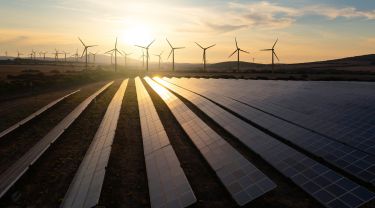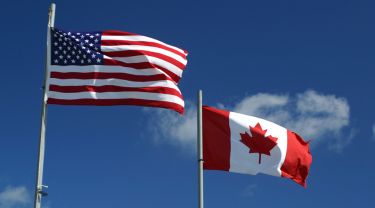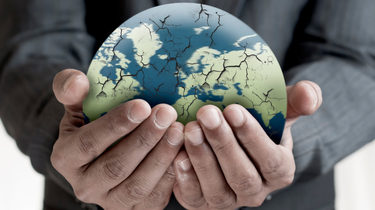Why does this matter?
While booting Russia from the global economy and international finance is proving to be painful given the country’s prominent role as a key exporter of wheat, energy and minerals, Russia’s share of world gross domestic product (GDP) and trade is relatively small at 1% to 2%. On the other hand, China’s share reaches nearly 15%. The biggest concern for Canadian companies is less about the future of Russia’s role in the world, but rather how does China engage internationally. Will China, for example, offer up preferential access to its market only to those in its sphere of influence?
What are the impacts of this rise in geopolitical risk?
1. Fast-tracking transition to renewables
If Europe ever needed a wakeup call on its energy independence, the situation in Ukraine is it. Instead of relying on Russian gas with the approval of the Nord Stream 2 pipeline, Europe, in particular Germany, is urgently rethinking its energy policy.
The future is renewable energy: The original 10-year plan to transition from fossil fuels has European leaders scrambling to find alternatives with calls for rapid changes and cutbacks in oil use before next winter. The high cost of gas and electricity will reduce demand by European households in the near-term and spur investment in wind, solar and nuclear energy projects.
The decarbonization of the world won’t be easy and will shift dependence on petrostates, like Russia, to emerging “electrostates” such as Mongolia and Chile, which offer green metals, including copper and lithium. Great powers will be competing for these resources to drive their knowledge economies to ensure commodity prices remain elevated. One argument against the inevitability of trade bifurcation is that given where the resources, technology and innovative centres of the broader clean energy supply chain are located, a complete divergence will not be feasible.
2. Global trade gets more complicated
With the closing of 650 McDonald’s restaurants in Russia and the announcement of 600 more companies following suit, it highlights perfectly how the global economy is wrestling with the extent of its interconnectedness. Are we entering a period of trade bifurcation between East and West? There are reports that many western companies are now reassessing their expansion plans into China in the event they may need to exit the market. This is taking place now in the technology sphere, as western companies find it increasingly difficult to operate in both markets.
The bottom line?
Geopolitical risk has risen because of the war in Ukraine, but it has also drawn attention to the broader global system that’s increasingly diverging. For Canadian companies, which have gotten used to and benefited greatly from a globalized economy powered by U.S. institutions, this competition ushers in a more uncertain, challenging period. Trade diversification is key to Canadian exporters success, but rising geopolitics should increasingly be factored into business plans.
As always, at EDC Economics, we value your feedback. If you have ideas for topics that you would like us to explore, please email us at Economics@edc.ca and we’ll do our best to cover them.

















